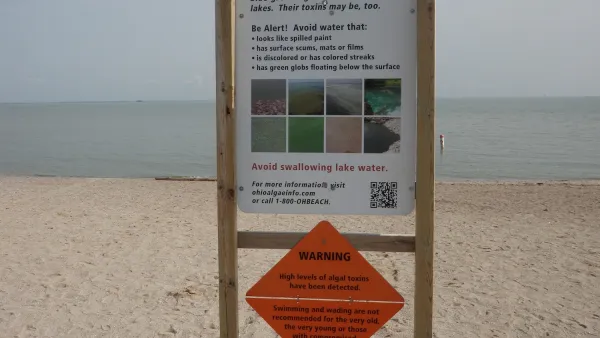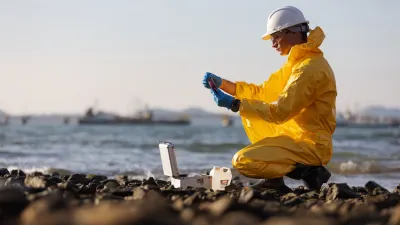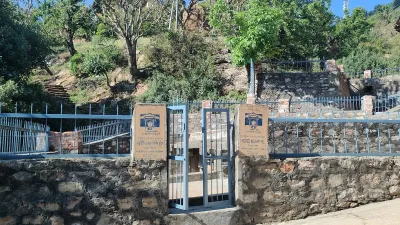Orange County, CA's new $480 million Groundwater Replenishment System is the world’s largest water recycling facility of its kind. It can turn wastewater and into drinking water, churning out up to 70 million gallons a day.
"(The s)ystem takes already-treated wastewater from the sanitation district next door and sends it through a rigorous three-step cleaning process. It's washed through microfiltration, pressed through rows of reverse osmosis membranes, and then blasted with ultraviolet light and hydrogen peroxide. After 45 minutes, out comes clean, drinkable water.
The final product doesn't go directly to the tap. Instead, half of it flows into a seawater barrier and the other half into a freshwater pond that replenishes the county's groundwater basin. In the end, the recycled water makes up about 20 percent of the drinking water for roughly 2.3 million people.
It's not necessarily the technology that has garnered Orange County such attention from water utilities around the globe. Recycling wastewater has been going on to lesser degrees elsewhere for some time. What has intrigued many is that the system met almost no public resistance when it came online in January.
"Technologically, it's almost trivial for us to do this now. The key is to get public acceptance and political buy-in," says Dr. Cooper, an early pioneer in water reuse practices."
FULL STORY: Water’s odyssey from sewer to cup

Maui's Vacation Rental Debate Turns Ugly
Verbal attacks, misinformation campaigns and fistfights plague a high-stakes debate to convert thousands of vacation rentals into long-term housing.

Planetizen Federal Action Tracker
A weekly monitor of how Trump’s orders and actions are impacting planners and planning in America.

In Urban Planning, AI Prompting Could be the New Design Thinking
Creativity has long been key to great urban design. What if we see AI as our new creative partner?

King County Supportive Housing Program Offers Hope for Unhoused Residents
The county is taking a ‘Housing First’ approach that prioritizes getting people into housing, then offering wraparound supportive services.

Researchers Use AI to Get Clearer Picture of US Housing
Analysts are using artificial intelligence to supercharge their research by allowing them to comb through data faster. Though these AI tools can be error prone, they save time and housing researchers are optimistic about the future.

Making Shared Micromobility More Inclusive
Cities and shared mobility system operators can do more to include people with disabilities in planning and operations, per a new report.
Urban Design for Planners 1: Software Tools
This six-course series explores essential urban design concepts using open source software and equips planners with the tools they need to participate fully in the urban design process.
Planning for Universal Design
Learn the tools for implementing Universal Design in planning regulations.
planning NEXT
Appalachian Highlands Housing Partners
Mpact (founded as Rail~Volution)
City of Camden Redevelopment Agency
City of Astoria
City of Portland
City of Laramie





























